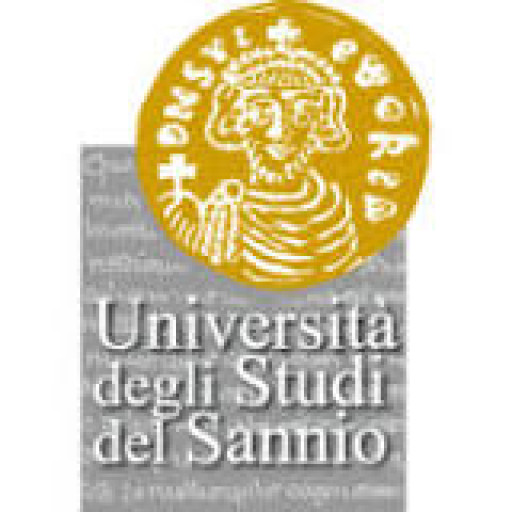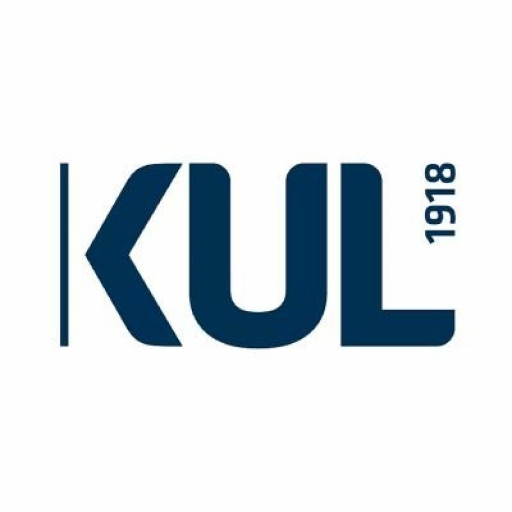Photos of university / #uni_southampton
The BSc Bionanotechnology at the University of Southampton offers a comprehensive and innovative program designed to equip students with a solid understanding of the interdisciplinary fields of biology, nanotechnology, and engineering. This degree provides a unique opportunity to explore the fundamental principles of biological systems at the nanoscale, combining knowledge from molecular biology, materials science, chemistry, and physics to develop cutting-edge technologies with applications in healthcare, environmental science, and industry. Throughout this course, students engage with both theoretical concepts and practical laboratory skills, enabling them to design, analyze, and utilize nanomaterials and nanoscale devices for various biomedical and technological purposes. The program emphasizes hands-on experience, with laboratory modules that simulate real-world research and development scenarios, fostering critical thinking and problem-solving abilities. Students also have the chance to participate in research projects, internships, and collaborative activities, which enhance their understanding of current trends and challenges in the rapidly evolving field of bionanotechnology. The curriculum is designed to provide a strong foundation in key areas such as molecular biology, biochemistry, nanomaterials, and computational modeling, while also encouraging innovation and entrepreneurship. Graduates of this program are prepared for a wide range of careers in academia, industry, and healthcare sectors, working on developing next-generation diagnostics, drug delivery systems, regenerative medicine, and sustainable nanotechnologies. The University of Southampton's state-of-the-art facilities and strong links with industry partners support an engaging and inspiring learning environment. By choosing this program, students will gain the knowledge, skills, and experience necessary to contribute to groundbreaking discoveries and technological advancements in the dynamic field of bionanotechnology, helping shape the future of medicine, environmental protection, and technological innovation.
The BSc Bionanotechnology programme at the University of Southampton offers an innovative and multidisciplinary exploration of the intersection between biological sciences and nanotechnology. This course combines rigorous scientific training in molecular biology, biochemistry, materials science, and nanofabrication techniques to prepare students for careers in cutting-edge research and industry sectors such as healthcare, pharmaceuticals, environmental monitoring, and nanomaterials development. Throughout the programme, students will develop a strong foundation in the fundamental principles of biosciences and nanoscale engineering, enabling them to understand and manipulate biological systems at the molecular and cellular levels.
The curriculum includes core modules covering topics such as cell biology, biotechnology, nanomaterials, and instrumentation techniques, complemented by laboratory work that emphasizes practical skills and experimental design. Students will also undertake advanced modules on drug delivery systems, nanobiotechnology applications, and the ethical considerations surrounding nanotechnology. The programme emphasizes hands-on learning through laboratory sessions, project work, and industry placements, fostering a deep understanding of both theoretical concepts and real-world applications.
In addition to scientific knowledge, students will develop essential skills in data analysis, scientific communication, and project management, preparing them for diverse careers in academia, research institutions, and commercial sectors. The programme encourages innovation and entrepreneurship, offering opportunities for students to engage in collaborative projects and explore emerging trends such as nanomedicine, biosensors, and regenerative medicine. Graduates will be equipped with the expertise to contribute to the development of next-generation solutions for healthcare, environmental sustainability, and other pressing global challenges.
The BSc Bionanotechnology programme is delivered by experienced researchers and industry professionals, ensuring that students receive a high-quality education aligned with current scientific advances and industry needs. The university’s state-of-the-art facilities, including specialized laboratories and collaborative research centers, provide an ideal environment for experiential learning and innovation. Upon successful completion of the programme, graduates will be well-prepared to pursue postgraduate studies, research roles, or careers in the dynamic and growing field of bionanotechnology.
Minimum Entry Requirements: Typical offer: A-level grades AAB including Biology or Chemistry and a second science or mathematics subject, or equivalent qualifications. We also consider other qualifications such as BTEC Level 3 Extended Diploma with a suitable profile, IB with a score of 34 points including 6 in Higher Level Biology or Chemistry and 5 in another Higher Level science or mathematics subject. Applicants are expected to demonstrate good numeracy and scientific literacy.
English Language Requirements: Non-native English speakers must meet the university’s English language requirements, generally an IELTS score of 6.5 with a minimum of 6.0 in each component, or equivalent qualifications.
Academic Prerequisites: Applicants should have a strong background in science and mathematics, including coursework in biology, chemistry, and mathematics at GCSE or equivalent level. A solid understanding of basic physics and computer skills is also advantageous.
Additional Requirements: Some modules may require or recommend prior knowledge in areas such as molecular biology, biochemistry, physics, or computing. Practical laboratory skills and experience in scientific research are beneficial for students to succeed in project work.
Interviews and Personal Statements: Offers are typically made based on academic record and personal statements. Interviews are not usually required but may be used for additional assessment.
Work Experience: Relevant work experience or extracurricular activities related to science and technology can strengthen application profiles. However, they are not mandatory.
Criminal Convictions: Applicants should declare any criminal convictions, and this will be considered in line with the university’s policies.
Additional Conditions: International students may need to meet specific visa and documentation requirements. Applicants are advised to consult the university’s admissions policies and course-specific guidance for further details.
The University of Southampton offers a comprehensive approach to financing studies for its Bionanotechnology undergraduate program, designed to support students throughout their academic journey. Prospective students can access a range of financial aid options, including government-funded scholarships, bursaries, and tuition fee loans. The UK Government recommends the Student Loans Company as a primary resource for tuition fee loans and maintenance loans, helping students manage the costs associated with higher education. International students are encouraged to explore different funding opportunities, such as university scholarships specifically for international applicants or external funding bodies that support scientific and technological disciplines.
The university also provides a variety of scholarships based on academic excellence, potential contribution to the university community, or financial need. These scholarships are often available for both UK and international students and can cover partial or full tuition fees. Additionally, the university’s Bionanotechnology program may be eligible for specific research grants or external sponsorships aimed at advancing scientific research and innovation in biotechnology and nanotechnology fields. Students are advised to consult the university's financial aid office and the official website for the most current information regarding application procedures, deadlines, and eligibility criteria.
Students are encouraged to consider part-time work opportunities both on and off-campus to support their living expenses. Southampton’s location and vibrant campus life provide numerous employment options for students seeking flexible work schedules aligned with their academic commitments. Furthermore, students enrolled in the Bionanotechnology program can benefit from work placements, internships, and project collaborations with industry partners, which not only enhance practical skills but can also sometimes include stipends or financial remuneration.
In terms of total costs, the University of Southampton’s tuition fees for UK students are outlined annually on their official website and vary depending on the specific program and student status. International students face higher fees, which are also specified annually. The university recommends early application for financial aid and scholarship options to maximize available resources and reduce financial burden. For students requiring additional support, the university’s financial support services offer personalized advice and planning tools to facilitate effective budget management throughout their studies. Overall, Southampton’s comprehensive financing options aim to make Bionanotechnology education accessible and affordable, fostering an environment where students can focus on their academic and research pursuits without undue financial stress.
Bionanotechnology at the University of Southampton is an interdisciplinary programme that combines principles from biology, chemistry, physics, and engineering to study and develop nanoscale biological systems and devices. This course aims to equip students with a comprehensive understanding of the fundamental concepts of nanotechnology and their applications in biological contexts, including medicine, diagnostics, and environmental science. The curriculum covers a broad range of topics such as molecular biology, nanomaterials, instrumentation, microscopy techniques, and bioinformatics. Students gain practical skills through laboratory work, project-based learning, and collaboration with industry partners, preparing them for careers in research, development, and innovation within the rapidly advancing fields of nanotechnology and biotechnology.
The programme emphasizes hands-on experience, with laboratory modules designed to develop proficiency in analytical and characterization techniques essential for studying biological nanostructures. Students also have opportunities to engage in research projects, often collaborating with faculty who are leaders in their fields, to deepen their understanding and contribute to ongoing scientific advancements. Additionally, the course offers modules on ethical, economic, and social issues related to nanotechnology, fostering a well-rounded perspective on the implications and responsible use of emerging technologies.
The University of Southampton is known for its strong focus on research and innovation, providing students with access to state-of-the-art facilities and laboratories. The degree prepares graduates for a range of career options including research and development in biotech companies, pharmaceutical industries, medical device development, and further academic study through postgraduate research programmes. The interdisciplinary nature of the programme allows students to tailor their learning with optional modules and specializations aligned with their interests and career aspirations.
Throughout the course, students benefit from a supportive academic environment, career guidance services, and opportunities for internships and industry placements. The programme duration is typically three years for full-time students and may include options for sandwich years or part-time study. Graduates of Bionanotechnology at the University of Southampton are well-positioned to contribute to innovative solutions in healthcare, agriculture, environmental management, and material science, reflecting the university’s commitment to advancing scientific knowledge and society.
This programme is designed for students with a strong interest in biology, chemistry, physics, or engineering, and who are eager to explore how nanoscale science can be applied to solve real-world problems. The University of Southampton's reputation for research excellence and its commitment to interdisciplinary education make it an ideal place to pursue a degree in Bionanotechnology, offering a rigorous academic experience coupled with practical skills and industry connections.










